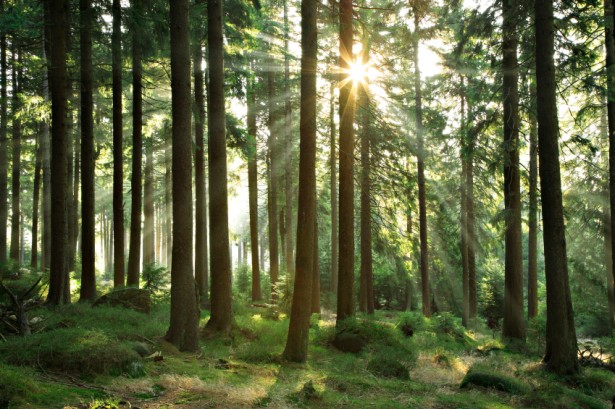It’s sometimes easy for nature to get lost during the international climate change negotiations here in Bonn. Terms like “technology diffusion,” “financial mechanisms” and “mitigation commitments” often dominate the talks.
But what does nature have to do with climate change and how does nature play into these negotiations?
A group of some of the world’s top scientific experts released findings [PDF] in Bonn this week to help give negotiators those answers.
During a side event [PDF] at the Bonn talks on Tuesday, the expert group – officially called the Ad Hoc Technical Expert Group on Biodiversity and Climate Change and convened by the Convention on Biological Diversity – said nature has a “vital role to play” in helping communities adapt to and overcome the impacts of climate change.
While there is ongoing discussion here to develop a consistent term to describe this ecosystem-based approach to adaptation, it comes down to one basic principle everyone seems to agree on: ensuring that the world’s natural resources are healthy and strong enough to survive the impact of climate change and can continue to provide the food, water, shelter and income we all rely upon for survival. People in developing countries in particular, whose livelihoods depend directly on nature, are the most vulnerable to climate change.
While there may be times when hard infrastructure is necessary, the expert group said that ecosystem-based adaptation is often more cost effective and more accessible to rural and poor communities than man-made infrastructure and engineering.
Unlike sea walls and levees, the experts said, using natural resources to combat climate impacts has the added benefits of supporting economies, promoting biodiversity, maintaining food and water supplies and providing other services such as eco-tourism and productive fisheries that contribute to sustainable livelihoods.
Ecosystem-based adaptation harnesses the power of nature to help human communities adapt to climate change. Strategies can include such things as protecting mangroves to shield communities and infrastructure against storm surges, ensuring forest systems stay healthy to provide clean drinking water or connecting fragmented lands to allow plants and animals to migrate away from areas impacted by climate change. These services provided free by nature would be extremely costly to replace, even if it were possible to do so.
The experts added that the value of ecosystem services must be taken into account in adaptation strategies.
In the first few days in Bonn, a range of developing countries voiced support for ecosystem-based adaptation to be part of the final climate change agreement that will be reached in Copenhagen this December.
“For island nations like ours – where we are truly on the front lines of climate change – ecosystem-based adaptation is essential to keeping our communities, economies and cultures alive,” Deborah Barker-Manase, a member of the Marshall Islands Delegation and Deputy Director of her government’s Office of Environmental Planning and Policy Coordination, said during a side event Wednesday. “We have traditional knowledge and practices that we have used for generations to keep our natural resources healthy and productive. We now need the help of the global community to ensure our resources can survive the impacts of climate change.”
In their policy recommendations submitted in preparation for the Bonn talks, Brazil, Colombia, Nicaragua, Guatemala, Honduras, Panama, Dominican Republic, Uruguay and Costa Rica all called for natural resource protection to be used as a tool to confront and adapt to climate change. The US submission also explicitly recognized the “value of promoting ecosystem-based adaptation strategies and approaches.”
But while there seems to be a growing support to ensure that nature is part of the climate change solution, the question remains of whether countries will ultimately provide the political will – and financial backing – to make it happen.
The scientific expert group, The Nature Conservancy, IUCN and many developing countries have been working to demonstrate how ecosystem-based adaptation works on the ground and how it can be incorporated into the negotiations.
Without this type of guidance within a Copenhagen agreement, there is a concern that countries may inadvertently use adaptation strategies that provide short-term benefits but cause long-term environmental damage that will simply exacerbate climate impacts.
Following some very slow opening days here in, negotiators this week and next will now move into closed door negotiations where the fate of how the world decides to combat climate change – and whether ecosystem-based adaptation will be one of the tools adopted – will be debated. It is these meetings — and the coming months leading to Copenhagen – that will determine if governments will take the steps needed to protect nature against climate change and let nature protect us.



